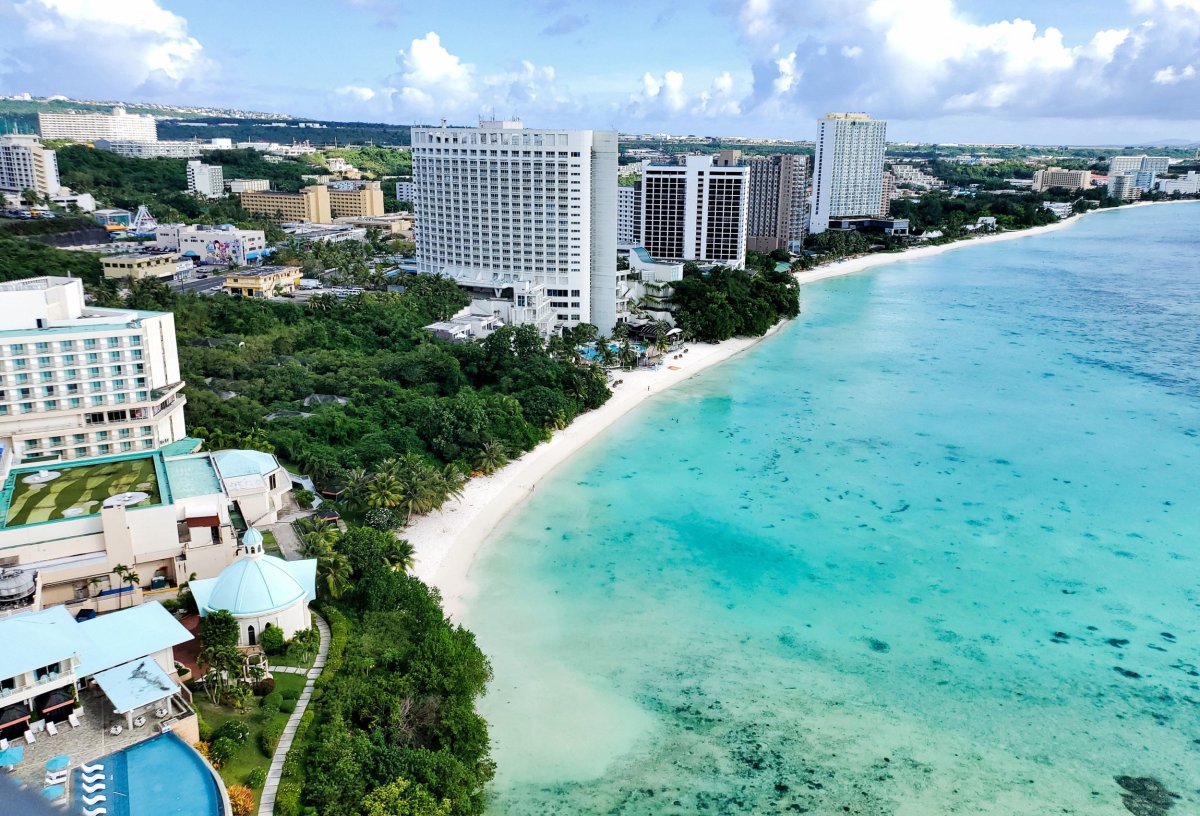Chinese nationals who come into Guam from the Commonwealth of the Northern Mariana Islands (CNMI) and circumvent or manipulate the process for legal entry "continues to be of concern," a Guam customs official told Newsweek.
CNMI, a separate commonwealth from the U.S. territory of Guam that shares a maritime boundary with Japan in the West Pacific, has drawn attention because of Chinese activity on a territory that has been managed by the U.S. post-World War II and officially became part of the U.S. in 1986.
CNMI and Guam have different governments and officials, which exacerbates a more complicated situation when compared to migrants entering the continental U.S. via the southern border.
In 2009, U.S. Customs and Border Protection (CBP) adopted the Guam-CNMI Visa Waiver Program. Critics say that the policy, which allows Chinese individuals to seek asylum or work illegally, has made the U.S. more vulnerable to nefarious Chinese Communist Party-led activities as part of a broader system not presently enforcing the necessary governmental and national security oversight.

Guam Customs and Quarantine (CQA) spokeswoman Alana Chargualaf-Afaisen told Newsweek via email that the CQA interdicts with unlawful arrivals to prevent harm in a variety of areas, including military intelligence and reconnaissance, terrorism, communicable diseases, human trafficking for slave labor, prostitution and illegal gambling, cheap, undocumented labor, the movement of illicit drugs, and other illegal activities "that pose a threat to the quality of life in Guam, are of equal concern to our island."
"Any extent or degree of these concerns and risks to national security making their presence in Guam is unwelcome and considered serious," Chargualaf-Afaisen said.
"CQA holds it paramount to ensure all arrivals to Guam are screened and authorized for entry, and properly accounted for in accordance with the law, and will impose penalties upon those in violation. This is critical for CQA's tracking and interception of individuals, goods and items that pose potential threats to our citizens, resources and national defense capabilities."
To detect and identify threats from unlawful arrivals, the CQA works with a variety of agencies such as the U.S. Coast Guard (USCG), U.S. Navy, CBP, Homeland Security Investigations, the Office of the Attorney General of Guam, the Port Authority of Guam, the Marianas Fusion Center, the FBI and others.
An interisland talk group among the CQA, the Guam Police Department, the USCG and Guam Homeland Security has been established to report daily vessel movements between Guam and the CNMI.
The agency has reported 118 unlawful or attempted unlawful entries by Chinese citizens since 2022, Chargualaf-Afaisen told Stars and Stripes in January. The most cases occurred that year with 85, followed by 27 in 2023 and six in 2024 through January.
On January 6 of this year, U.S. Coast Guard forces in Micronesia teamed with Guam Fire Rescue and the U.S. Navy to save six individuals hailing from the People's Republic of China (PRC) on a distressed 23-foot recreational vessel about 30 miles northwest of Guam.
Special Agent in Charge John Tobon of Homeland Security Investigations in Honolulu told Stars and Stripes that the Chinese nationals are primarily arriving for economic reasons rather than malicious ones.
"The one thing about all those individuals is that they are all vetted before they are admitted into Saipan," Tobon said, adding that "a whole host of government databases" is involved prior to travel to the territories.
"Once they're in Saipan, they may try to come over to Guam, but the overwhelming majority are really doing it for economic reasons," he said.
Aside from concerns over Chinese nationals in Guam and their intent, the small Pacific island some 6,000 miles from California is firmly in the crosshairs of a potential U.S.-China military conflict.
"There are many in the community who are critical of the role that Guam, as an unincorporated territory, is forced to play in the posturing and aggression occurring between China and the United States," Melvin Won Pat-Borja, executive director of the Guam government's Commission on Decolonization, previously told Newsweek.
"As a territory, Guam's relationship with the federal government, and thus the Department of Defense, is marked by consultation and not consent."
Uncommon Knowledge
Newsweek is committed to challenging conventional wisdom and finding connections in the search for common ground.
Newsweek is committed to challenging conventional wisdom and finding connections in the search for common ground.
fairness meter
To Rate This Article
About the writer
Nick Mordowanec is a Newsweek reporter based in Michigan. His focus is reporting on Ukraine and Russia, along with social ... Read more
To read how Newsweek uses AI as a newsroom tool, Click here.






